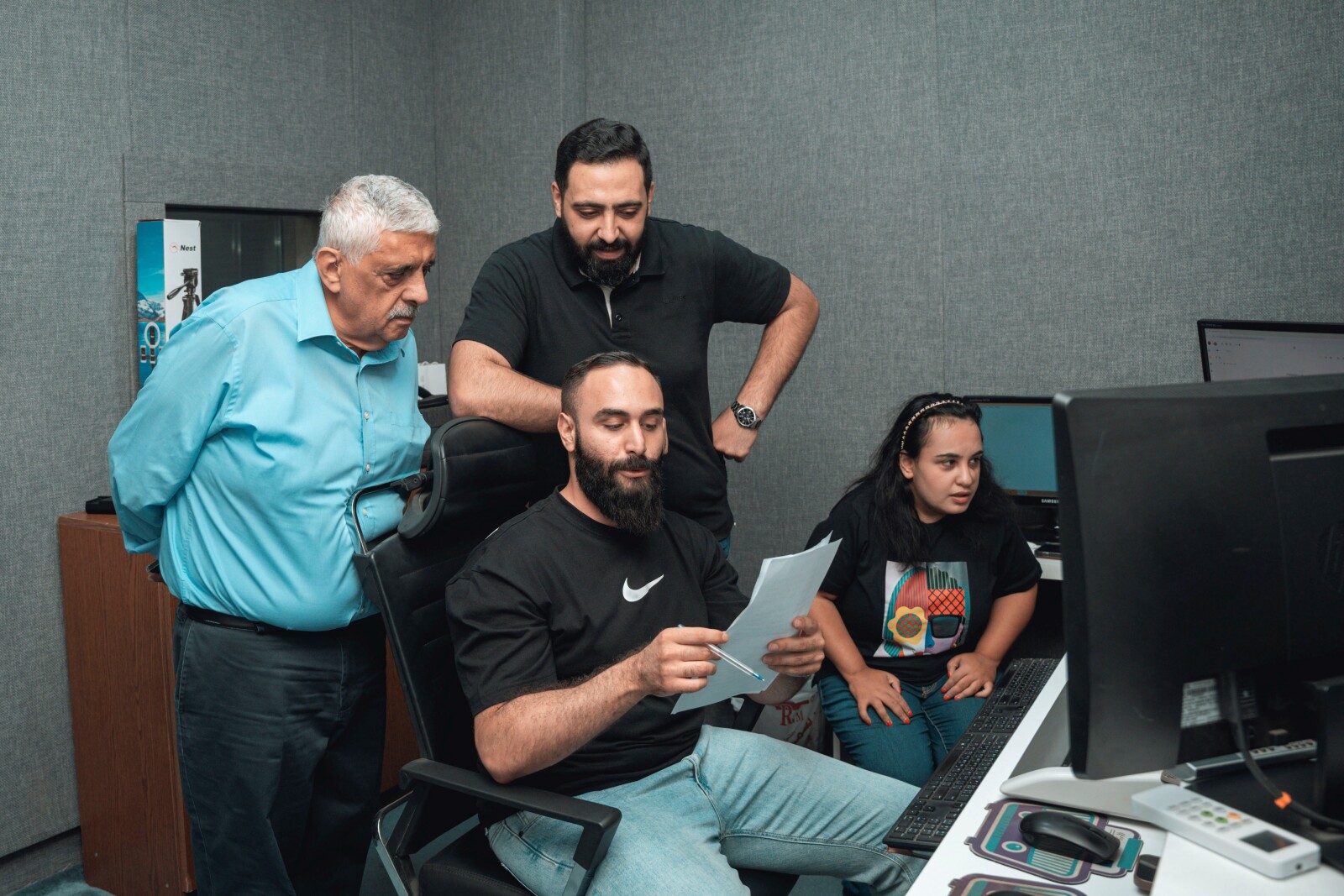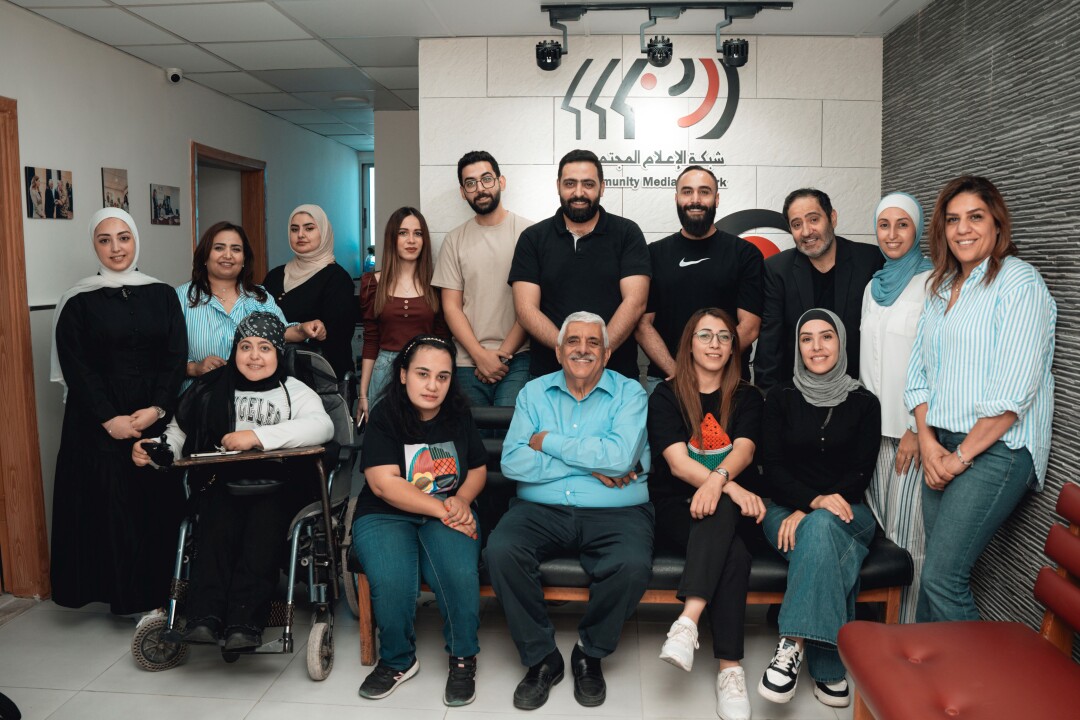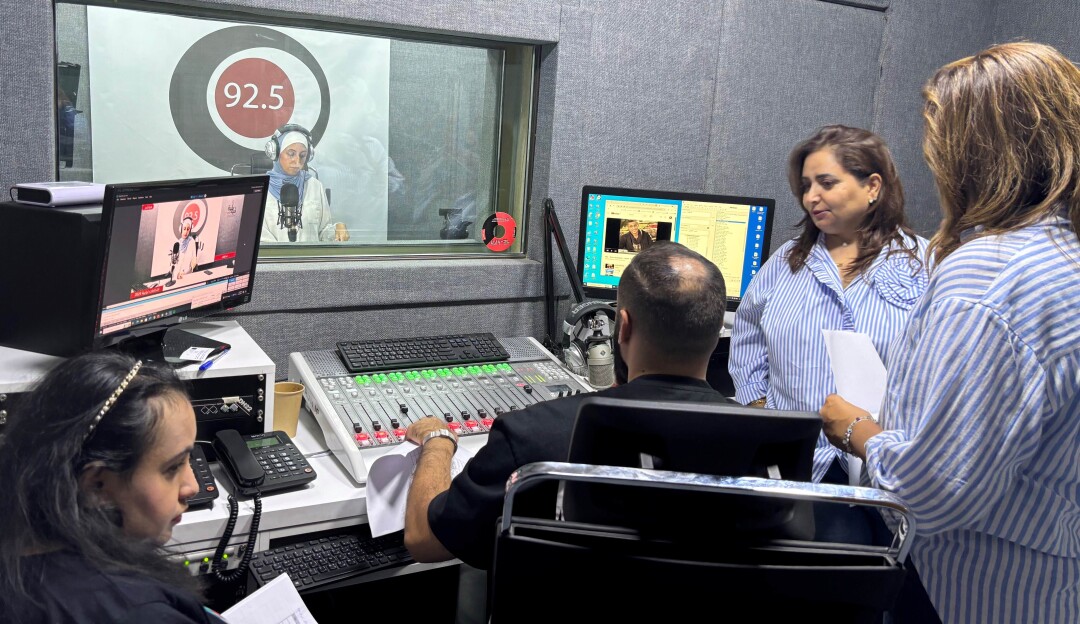
Daoud Kuttab knows all about adversity. An American Palestinian journalist and media activist, international columnist, and former professor of journalism, his work has meant he has often come under the radar of the authorities.
Founder and director general of Radio Al Balad and its sister internet portal, Ammannet, Daoud grapples daily with the realities of operating in a media environment of increasingly intrusive government practices and restrictive laws.
“I have to find the balance where my integrity as a journalist and our integrity as a media outlet is preserved, without losing our license or losing our ability to be effective,” he says.
He explains that journalists in Jordan routinely face censorship, self-censorship, and legal repercussions for any content deemed critical of the government or sensitive to national security. In a media sphere dominated by well-funded government aligned outlets, independent media outlets struggle to survive.
Today, it is the big tech giants like Google and Meta that attract most advertising revenue; what’s left goes to the government media. Journalists from newer online portals, such as Ammannet, don’t even have the option of joining the state-run Union of Journalists.
Daoud explains that despite these challenges, he works hard to make sure his journalists have the freedom to cover the stories they need to write. It can be more difficult to protect himself.
Earlier this year, Daoud found out he was one of 35 people in Jordan targeted by the Pegasus spyware. Funding for the Community Media Network (CMN), the non-profit umbrella network of both Ammannet and Radio Al Balad, was not approved for a longer period, putting the media outlets in serious jeopardy. Under Jordanian law, all non-profit organisations need to obtain government approval before receipt of foreign funding.
This follows a souring of relationship between Daoud and the authorities after he wrote an article for Foreign Policy ‘How Jordan censors journalists’. It was at this point that EED provided CMN with emergency funding to enable it to pay salaries and to pay annual radio licence fees imposed by the government. This is not the first time that the foreign funding approval mechanism has been used by the government to put pressure on media or civil society organisations.

Daoud set up Radio Al Balad, the Arab world’s first internet radio station in 2000. Originally named Ammannet, the radio station later obtained an FM radio license, and following this, the Ammannet news portal continued as a news website.
He explains that radio continues to be an important medium for news in Jordan, especially for early morning and late afternoon listeners sitting in their cars, however this is an older audience and CMN is increasingly focused on engaging with younger people.
“The majority of the population of Jordan is under 35, but the majority of parliamentarians are much older than 35. So, we have a government run by older men mostly, but the country and our own audience is younger people. In the last two years, we’re trying to do more with youth and on digitalisation,” he says.
Already today, CMN’s social media reach is far greater than its radio footprint, however Daoud sees these media as complementary.
“I always believed,” he says, “and this has not changed since day one. The key is content. We have to create original, good quality content. The means of distribution often change. But as long as your content is quality, professional, courageous, then that's the key.”
Radio continues to be the anchor for CMN’s content. Guests are more likely to agree to participate in radio shows than to be interviewed on Facebook, yet when this content is repackaged for social media, it reaches far wider audiences.
This September, Jordan held its first elections as part of a transition to a constitutional monarchy, with 33 percent of seats available to political parties (41 out of 138 seats). While the turnout was low, the new parliament is expected to be more engaged and more accountable due to these recent electoral changes.
Over the coming period, the Ammannet and Radio Al Balad journalists will focus much of their attention on this parliament, with live streaming and interviews with parliamentarians. This follows the media’s extensive coverage of the pre-election period, including five debates, a report on political parties, and interviews with candidates from all sides. The team will also continue to develop their youth engagement and digitilisation strategies.
Today, Daoud’s main concern is sustainability, both financial and political. He does not expect the media environment to change much, but he is prepared for that. It’s about finding the “balance between absolute freedom and critical journalism and keeping an eye over your shoulders,” as he puts it.
More challenging perhaps is financial stability. In a media sphere, where independent media depend on grant support to survive, few donors provide multi-year grants that allow for long-term growth and planning or cover core costs. He believes that this is vital for the survival of independent media. He also believes that independent media should work closer together. “If we put our resources together, we can do so much more,” he says.
This article reflects the views of the grantees featured and does not necessarily represent the official opinion of the EED.
